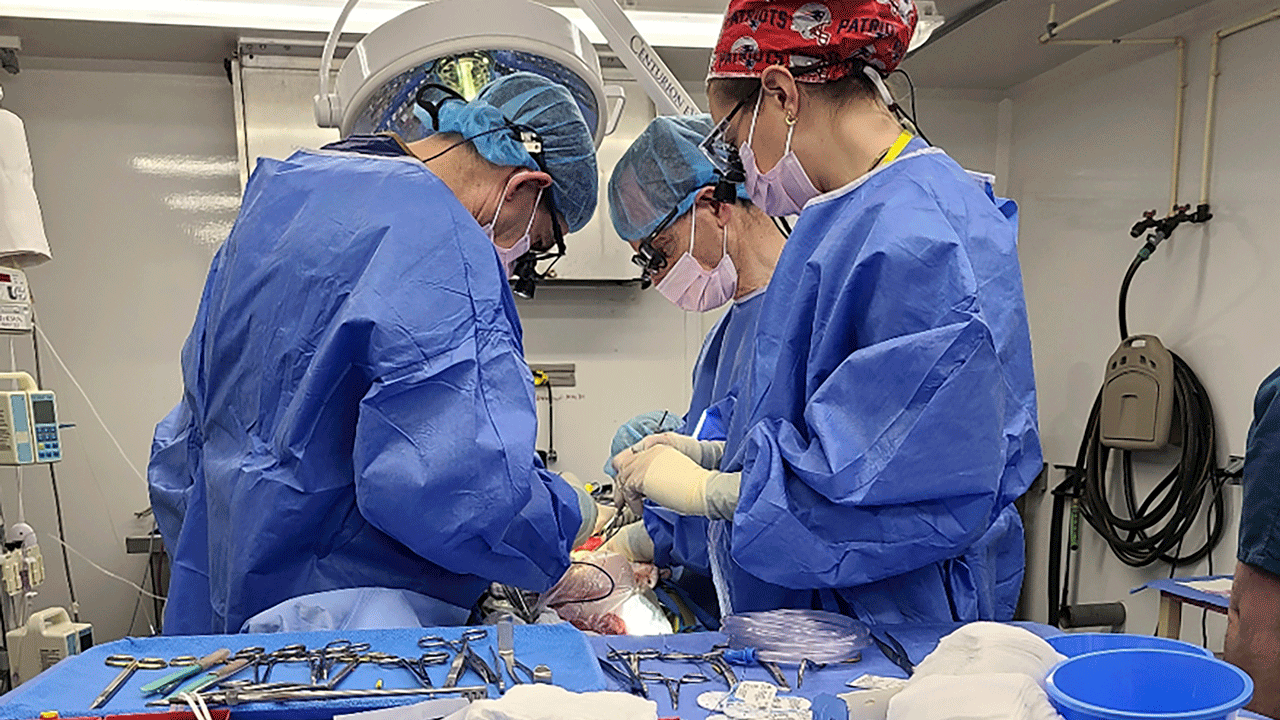The field of medicine has witnessed a groundbreaking experiment that has shed light on the potential of using pig organs to treat liver failure in humans. This pioneering study, conducted at the University of Pennsylvania, has demonstrated the successful external attachment of a pig liver to a brain-dead human body, resulting in the effective filtration of blood. The implications of this innovative approach are far-reaching, offering hope for individuals suffering from liver failure and highlighting the remarkable adaptability of pig organs in addressing critical medical needs.
A Radical Approach to Organ Transplants
In this experimental procedure, the pig liver was connected externally to the donated human body, marking a significant departure from traditional animal-to-human organ transplants. Unlike conventional organ transplants where the foreign organ is implanted within the recipient’s body, this technique harnessed the pig liver’s blood-cleansing capabilities externally, akin to the function of dialysis for failing kidneys. This pioneering strategy not only presents a novel perspective on organ transplantation but also provides a potential “bridge” to support individuals grappling with liver failure.
The Promise of Xenotransplants
Efforts to utilize animal organs for human transplants, known as xenotransplants, have been fraught with challenges due to the immune system’s rejection of foreign tissue. However, advancements in genetic modification have sparked a renewed interest in xenotransplantation, particularly with pigs whose organs have been engineered to closely resemble human tissue. Previous endeavors have seen the temporary transplantation of genetically modified pig kidneys into brain-dead donors, along with the groundbreaking yet tragic cases of heart transplants from pigs.
Exploring the Potential of Pig Livers
The experimental focus on pig livers represents a crucial advancement in the realm of xenotransplantation, as these organs possess unique complexities in filtering blood, eliminating waste, and synthesizing vital substances for bodily functions. With thousands of individuals awaiting liver transplants in the United States, the potential of pig livers offers a glimmer of hope for addressing the pressing shortage of donor organs. Moreover, the prospect of using pig livers in treating liver failure underscores the evolving landscape of medical innovation and the potential to transform patient care.
Unraveling the Novel Experiment
At the heart of the University of Pennsylvania’s groundbreaking experiment lies the utilization of a genetically modified pig liver, developed by eGenesis, in conjunction with a specialized device from OrganOx designed for preserving human livers before transplant. The testament to the success of this pioneering endeavor is the stable condition of the donor’s body throughout the 72-hour blood filtration process, coupled with the absence of any discernible damage to the pig liver. Such monumental progress holds immense promise for reshaping the landscape of organ transplantation and revolutionizing treatment modalities for liver failure.
The Road Ahead: A Vision for Progress
As the scientific community and regulatory bodies, such as the U.S. Food and Drug Administration, deliberate on the feasibility of pig organ transplants, the momentum of this transformative research continues to gather momentum. The potential for qualified individuals in need of organ transplants to participate in rigorous studies involving pig hearts or kidneys underscores the evolving paradigm of medical exploration. The convergence of cutting-edge genetic techniques and innovative medical devices has paved the way for an era of unprecedented possibilities in addressing critical health challenges.
A Step Forward in Superior Care
The resounding impact of the University of Pennsylvania’s experiment reverberates across the medical landscape, propelling the field of xenotransplantation to new frontiers. The fusion of pig organs and state-of-the-art medical devices represents a compelling leap towards advancing care for liver failure and underscores the steadfast commitment of researchers and medical professionals in pioneering transformative solutions. Dr. Parsia Vagefi of UT Southwestern Medical Center aptly acknowledges the significance of this groundbreaking approach, underscoring its potential to elevate the standard of care for individuals battling liver failure.
In conclusion, the remarkable strides made in the domain of xenotransplantation, exemplified by the successful utilization of pig livers in addressing liver failure, reaffirm the transformative potential of groundbreaking research and innovation in shaping the future of healthcare. As the boundaries of medical exploration continue to expand, the remarkable adaptability of pig organs in addressing critical medical needs holds the promise of a paradigm shift in organ transplantation and patient care.


